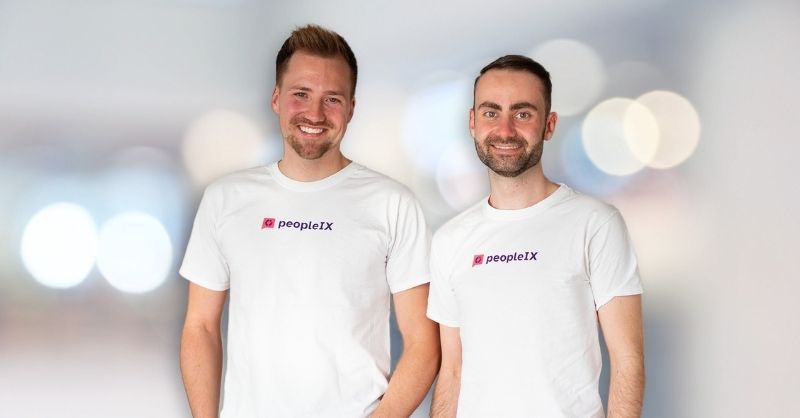Key Takeaways:
I. Private tech valuations appear increasingly detached from public market realities, raising concerns about a potential bubble.
II. Integration complexities, often exacerbated by technical debt and data security risks, pose significant hurdles to realizing acquisition synergies.
III. A disciplined, data-driven approach, grounded in value investing principles, is essential for navigating the uncertainties of tech M&A.
Bain Capital's recent surge in tech acquisitions has drawn considerable attention, raising questions about the firm's strategic direction and investment philosophy. While the allure of high-growth tech companies is undeniable, the current market environment, characterized by volatile valuations and complex integration challenges, demands careful scrutiny. This analysis examines Bain Capital's tech appetite through a value investing lens, evaluating deal rationale, assessing potential risks, and benchmarking against industry peers. Given the limited transparency inherent in private market transactions, this assessment relies on available data, emphasizing the importance of thorough due diligence and a cautious approach.
Beyond the Hype: Valuations in a Shifting Market
The tech sector has experienced a dramatic shift in valuation paradigms. The once-dominant 'growth-at-all-costs' mantra is being replaced by a renewed emphasis on profitability and sustainable business models. This change is reflected in the decoupling of the SaaS Capital Index, a key benchmark for private SaaS companies, from broader market indices like the NASDAQ and S&P 500. While public markets have largely recovered from the 2021 downturn, the SaaS Capital Index remains below its peak, signaling a potential disconnect between private and public valuations.
Value investors prioritize intrinsic value over market sentiment, focusing on a company's long-term earnings power, cash flow generation, and sustainable competitive advantages. A key metric for evaluating SaaS companies is the Rule of 40, which combines revenue growth rate and EBITDA margin. Research suggests that a 10% improvement in a company's Rule of 40 score correlates with a 1.4x increase in its revenue multiple, underscoring the importance of balancing growth with profitability.
| SaaS Category | Average Deal Value (USD Millions) | Number of Deals | Median Revenue Multiple (H1 2024) |
|---|---|---|---|
| Enterprise Solutions | 280 | 15 | 5.2 |
| Digital Commerce | 190 | 12 | 4.8 |
| Analytics & AI | 80 | 8 | 6.0 |
| Supply Chain Management | 45 | 6 | 5.5 |
Applying these principles to Bain Capital's tech acquisitions raises important questions. Are these acquisitions truly undervalued opportunities, or are they being driven by market exuberance and competitive pressure? The lack of detailed financial data on many of these deals makes a definitive assessment challenging. However, the median valuation multiple for private B2B SaaS companies, at 4.1x as of March 2024, sits at a substantial discount to public market multiples. This discrepancy warrants further investigation into whether Bain Capital is paying premiums justified by fundamentals or influenced by a frothy market.
Beyond headline valuations, operational efficiency and the realization of synergies are critical for long-term value creation. Bain Capital's ability to drive operational improvements in its acquired companies, leveraging its expertise and resources, will be a key determinant of success. This requires not only financial acumen but also a deep understanding of the target companies' technologies, business models, and competitive landscapes.
Beyond the Deal: Mastering the Art of Tech Integration
The increasing prevalence of 'scope deals' in tech M&A, where the focus is on acquiring specific capabilities or technologies rather than entire companies, presents unique integration challenges. These deals often hinge on achieving revenue synergies through the seamless integration of product portfolios, a task that is frequently more complex than anticipated. Industry data reveals that the inability to effectively integrate acquired technologies is a leading cause of M&A failure, underscoring the critical importance of this phase.
Merging disparate technology stacks, often burdened by technical debt accumulated over years of independent development, can be a herculean task. Outdated applications, incompatible systems, poorly documented code, and varying data security practices can create significant roadblocks to integration. Best practices for navigating these complexities include adopting microservices architectures, implementing robust data governance frameworks, and leveraging cloud-native integration solutions.
Data security is paramount in tech M&A, especially given the increasing frequency and severity of data breaches and the evolving regulatory landscape. Acquired companies often possess valuable intellectual property and sensitive customer data, making robust security measures essential throughout the integration process. Thorough security audits, data encryption protocols, strict access controls, and comprehensive incident response plans are crucial for mitigating risks and maintaining compliance.
Bain Capital's ability to effectively address these integration challenges will be a key differentiator in a competitive market. A proactive approach to due diligence, identifying potential technical debt and security vulnerabilities early on, is essential. Furthermore, a well-defined integration roadmap, coupled with a skilled team capable of executing it flawlessly, is crucial for realizing the full potential of these acquisitions and avoiding costly delays and setbacks.
Strategic Positioning: Bain's Quest for Tech Dominance
Benchmarking Bain Capital's tech acquisition activity against other major private equity firms provides valuable context. EQT's acquisition of Avetta for $3 billion, including debt, at a multiple of 24x projected EBITDA, serves as a relevant comparison. This deal significantly surpasses the median valuation multiple for private B2B SaaS companies, raising questions about prevailing market premiums and Bain's acquisition strategy. Analyzing a broader set of PE tech deals is crucial for a more comprehensive assessment.
The competitive landscape in PE tech M&A is intensely competitive, with firms constantly vying for attractive targets. This dynamic can lead to inflated valuations, bidding wars, and the risk of overpaying for assets. While Bain Capital's deep pockets, extensive network, and operational expertise offer advantages, maintaining discipline in valuations and adhering to a rigorous due diligence process remain paramount for long-term success in this challenging environment.
The Verdict: Prudence and Perspective in Tech's Uncertain Future
Bain Capital's tech acquisition spree presents a compelling case study for investors navigating the complexities of today's market. While the firm's resources and expertise are undoubtedly valuable, the current environment demands a cautious and discerning approach. The potential for overvaluation in private tech deals, coupled with the significant challenges of integration, necessitates a rigorous, data-driven approach grounded in value investing principles. Prudent investors should prioritize intrinsic value, sustainable growth, and operational excellence over market hype and short-term gains. Ultimately, greater transparency on deal specifics would enable a more comprehensive assessment of Bain's long-term prospects in this dynamic and evolving landscape.
----------
Further Reads
I.
II.









